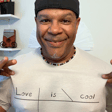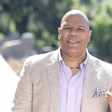Become a Creator today!Start creating today - Share your story with the world!
Start for free
00:00:00
00:00:01

7. Eta | The Leader-Follower Relationship
Ever wondered what's behind how leaders and members interact in a fraternity or sorority chapter? On this episode of Ethocast, we explore how the leader-follower dynamic. Three takeaways for anyone in Greek life are:
- Leadership Evolved: How leadership paradigms have changed over time.
- Chapter Leaders and Members: We break down the important leader-follower relationship in a chapter.
- Personalities at Play: We explore how different personalities can influence the dynamic between chapter leaders and members.
Whether you're a potential recruit or a seasoned Greek life member, this fill up on a sample of the knowledge and insights shared with fraternity and sorority members on campuses across the country.
Ethocast is a "For Our Edification" limited series and is supported by Edify Ventures, LLC.
Transcript
Essential Elements of Leadership
00:00:00
Speaker
It's simple. A leader cannot lead without people. You can try to collect data without people. You can try to analyze that data without people. you can try to make a process work without people. You can try to make sales without people. And before you get all sporty and goofy on me and say, huh, what about AI? Well, try to make AI work without people. A leader needs people. At the same time though, people need a leader who's going to guide them to a goal. So let's talk about the leader follower relationship on episode eight of Ethocast.
00:00:43
Speaker
Welcome to Ethocast, a podcast about sound leadership practices to boost life in college fraternities and sororities.
Introduction to Ethocast and Leadership Lessons
00:00:51
Speaker
I'm Eddie Francis, presenter of Followership to Leadership and the Black Greek Success Program, presentations designed to help Greeks become more effective leaders. On Ethocast, I'll share lessons learned from my college days, my career journey, and leadership research. Ethocast is a four-hour edification limited to series and presented by Edify Adventures. This is Ethocast, leadership to the letter. In 1989, I became a college chapter president for my fraternity.
00:01:22
Speaker
And then it happened again in 1991. In 2003, I became an alumni chapter president of my fraternity. It was rough. I had no earthly idea what I was doing. My idea of leadership was basically to try to know it all and to do it all and also to try to do things mistake free. So you know what happened? Since I was so afraid of failing, I tried to be a voice of dominance. I actually, I kid you not in a couple of meetings, I literally pounded my fist on the table out of frustration. Yeah, I had a lot of fun. I'm sure if you've been through a leadership training, especially recently, your thought is yikes. Yikes is exactly right.
00:02:16
Speaker
Listen, this is what I want to do this episode of ethical cast. I want to dedicate time to really digging into the importance and of understanding the leader follower relationship because as someone who is in Greek life, this is going to save you a lot of grief. We have three things that we're going to take away from this first. you're going to learn how leadership has changed over the course of time because it really has. Second, you're going to learn the definition of the leader follower relationship. And third, you're going to learn how personalities come into play. Let's talk
Exploring Leadership Paradigms
00:02:56
Speaker
about it. The views expressed on Ethocast do not necessarily reflect the views of the hosts, guests, or any entities with which this podcast's participants are affiliated. Questions, comments, email eddie at eddiefrancis.com.
00:03:11
Speaker
So there's a scholar out of Australia named Gail Avery. Avery theorized that there are four leadership paradigms that the world has gone through since the beginning of time. And she really, really frames this more as organizational leadership, but I think it can be loosely applied to community leadership. But for the purposes of this podcast, we are talking about, organizational leadership. So what is the first paradigm is called classical leadership from antiquity until the 1970s.
00:03:48
Speaker
So what Avery theorize is that leader dominance was done more through command and control or through gaining respect in some sort of way. The follower was either rewarded or punished in some sort of way. So if you think about your classic monarchy, or if you think about an authoritarian style of leadership is normally what we saw a lot of times. And then there is another paradigm of leadership that took root in the seventies and went on through the mid 1980s. And Avery calls that transactional leadership.
00:04:29
Speaker
In transactional leadership, the leader makes things happen through interpersonal, uh, influence. And so what happens is that the leader creates this environment of what Avery calls appropriate management. The follower though, receives negotiated rewards and also agreements. And then also they have these expectations that are created that guides their commitment. Now in the mid 1980s through the end of the 20th century, Avery saw a style of leadership called visionary leadership. As a matter of fact, visionary leadership is still a pretty popular style of leadership because what the leader does is the leader inspires by creating a vision, right?
00:05:15
Speaker
And this is unlike the other paradigms the other paradigms the leader didn't have to worry about a vision because all the lead had to do was say go and people would go that way. Well now the leader is noticing something different in the masses. And so the follower commits to the vision that the leader has, but what's going on is that the leader is, is, is really showing some sort of charisma or doing something to attract the follower because the leader is getting buy-in from the follower in order to carry the vision out. So now what do we have in the 21st century in the 21st century, we have the paradigm of organic leadership.
Leadership Evolution and Theories
00:06:01
Speaker
Organic leadership, the leader is actually part of the culture of what's happening within that organization. And the leader, instead of being appointed or inheriting leadership, emerges from the culture of that organization. The follower has a little bit more power here. As a matter of fact, the follower has a lot more power here because the follower is, is the one who's responsible for forming this culture. The follower has the shared beliefs, the values, the traditions, the symbols that create the culture and the leader is a product of that.
00:06:46
Speaker
So you also have in this shared processes. You have the, you have self-determination that comes into play. And so where the vision comes from for the leader here, it really comes from the people. It comes from the culture itself. It comes from the followers. Does this sound familiar? It should. Because isn't it how fraternities and sororities tend to operate a lot of times? Sure. We have our leaders. We have our national international leaders. We have our regional leaders, district leaders, chapter leaders, area leaders, right? But since theoretically we are brothers and sisters,
00:07:37
Speaker
We're all supposed to have the same voice. And if we're all supposed to have the same voice, we have this person who has been initiated into our fraternity and sorority. And this person here it comes from the culture of their chapter. They come from the culture of their region, of the state that they're in, the culture of the campus. They rise through the culture of the organization and they become the president or the international president of our fraternity or a sorority.
00:08:08
Speaker
And the thing that's really beautiful about it. And I think this is why the paradigms have changed so much, especially the way it has changed in the 21st century is diversity, diversity of thought first, but also diversity when it comes to ethnicity, nationality, when it comes down to gender, when it comes down to ability, religion, all these different dimensions of diversity contribute. to the culture, really creating the leader, especially in fraternities and sororities. This is why I like to say that leadership is a people thing. you Again, like I said in the beginning, you can try to create and analyze data without people. You can try to implement processes without people. You can try to make the sale without people, but you're not going to be able to do it. Are you? So,
00:09:08
Speaker
Here's what happened in the leadership studies community. With these changes in leadership over the course of time, of course, there have been a lot of changes in how people have studied leadership. Most of the time, scholars have looked at leadership based on the leader himself, in most cases, himself. But they realized something at some point. they realize that number one, him isn't always going to be a him. They also realized that they're these other people. Oh, they're called followers. And guess what? Followers have agendas and they make decisions and they influence the way things go in an organization. And when followers are ignored, they tend to rebel.
00:10:01
Speaker
And so the leadership studies community started to take a much closer look at followers, to understand the behaviors of followers and to understand how followers influence leaders. So when they started to really look at leadership theory, they started developing what it was called contingency theories. A contingency theory is just what it sounds like. The effectiveness of a leader is contingent on the relationship that they have with the followers. One of the theories that I really like and I use it as the framework for my master's final project is the leader member exchange theory or the LMX as it's called. Here's how the LMX works.
00:10:51
Speaker
I talk about this in my followership to leadership presentation in LMX. The leader forms two types of exchanges with people, high quality exchanges and low quality exchanges. The high quality exchanges that leaders have with followers is usually all about them being able to communicate in a pretty healthy feedback loop. A lot of times they've established some great interactions, some great relationships. And because of those interactions, the those relationships, the communication, the feedback, they able to push the organization forward somehow.
00:11:35
Speaker
Low quality exchanges, it doesn't mean that that the that the organization doesn't move forward, but the process is a little slower. And the reason is the exchanges are really just out of obligation. In other words, a low quality exchange is the followers saying, all right, I'm going to do my job today. I don't really have to like you and I don't have to sing your app praises, but I do have to do my job. That's what a low quality exchange tends to look like. People doing things simply out of a contractual obligation of some, of some kind. So let's take a look at the second element here. The second big thing to talk about is what exactly is the leader follower relationship to um when leaders form relationships with followers.
00:12:29
Speaker
is usually done with the people who are within their sphere of influence. So let's look at the size of a chapter. For example, if you listen to the episode Zeta of etho
Leadership Dynamics in Fraternities
00:12:40
Speaker
cast, I had Sarah Colazzo on. I joked with Sarah about having been a chapter president in college with 10 members. Sarah was a chapter president or her Zeta Tau Alpha chapter of 200 members. And what did that look like for us? I'm not going to attempt to speak for Sarah certainly, but I can say that for me, having 10 members in my chapter,
00:13:06
Speaker
It really wasn't that hard for me to form a relationship with every single member of the chapter. Everybody was it was within my sphere of influence, but for Sarah, I wouldn't be surprised if it was a little different having 200 women in her chapter. And so she can only reach so many people and and she can only have a robust relationship with so many people. So who are these people that she has this relationship with or who any chapter president of a large chapter is going to have relationships with? Well,
00:13:39
Speaker
That group is called an end group. It's the group that is closest to the leader that tends to have high quality exchanges with the leader. And when you have the end group, the end group tends to be the nucleus of what happens a lot of times within the chapter. Now this doesn't necessarily mean that a smaller chapter is going to run better. It's quite the, you know, it can be quite the opposite sometimes because when relationships break apart in a smaller chapter, they break apart pretty badly because you only have so many people in the first place. And so I would argue that.
00:14:23
Speaker
the leader follower relationship and the smaller chapter is extraordinarily important, maybe more important than a bigger chapter, but I'm not gonna, I'm not gonna, I'm not gonna go ahead and put my stamp on that because everything works a certain way in every group. It depends on that group. So this is why when someone takes on a leadership role, I think it's really important for the leader to have a trusted advisor, a trusted advisors, people who are going to help guide the leader, people who are going to help the leader understand what's happening in the chapter, the people who are going to help the leader make decisions in the most, um, um, the most effective way possible for the sake of the chapter.
00:15:17
Speaker
But let's take a look at the follower in because as we pointed out earlier, the follower counts too. And the follower has a set of behaviors that influence the leader's perception. Now there is this thing called followership and I'm going to talk about followership on a later episode. But what this does is it puts the followers squarely in the leadership process. All right, let's pause for a second on that word process. I think one of the biggest mistakes we make when it comes to leadership, especially when people throw us in a deep end and tell us, okay, just go ahead and lead this chapter, man.
00:16:00
Speaker
Do your best. I know you can do it. Or when someone gets elected to that district position or they get elected to that regional position or they get elected to that national international presidency and they're not necessarily understanding the dynamics of leadership. The mistake that a lot of us make is that we look at leadership as a title. We look at it as a position. We look at it as a status. Actually, I'm gonna argue, let's argue, that leadership is more of a process. The reason I say that is you think back to the paradigms that I just talked about. With these paradigms, there was a lot of change because of diversity, diversity of thought, diversity of nationality, companies becoming bigger,
00:16:59
Speaker
becoming global. And so what happens with all of these companies becoming much more global or what happens as you put a national leader more on a worldwide stage is that more diverse groups of people see that leader, they see the leadership. And so they have a lot more to say about what's happening with leadership. And so what does the leader have to do? The leader has to constantly learn. The leader has to constantly learn and that learning is a process. So to me, leadership is a process and followers are a part of that process.
00:17:46
Speaker
But see followers also influence other followers. We've seen this before, right? Leader makes a decision that folks don't like. One chapter member tells another chapter member who talks to another chapter member who talks to another chapter member. Nobody's talking to the chapter president, but the chapter members are all talking to each other. All of a sudden the chapter president sees behaviors and they're going, what in the entire HE double hockey sticks is going on with this chapter?
Enhancing Leader-Follower Relationships
00:18:15
Speaker
And because the, and because the followers have that kind of influence, then the leader has behaviors that change as well. Or the leader has behaviors in response to what they're getting back from the chapter. So where does the rubber meet the road with all of these exchanges?
00:18:38
Speaker
Well, the rubber meets the road in personality. You got to understand people's personalities. Now, have you ever wondered why it is that certain fraternity brothers and sorority sisters act the way they do? Well, it's the type of personality that they have. If you can understand someone's personality, then you can understand their behaviors and you can understand their perceptions of things. You can also understand their attitudes and you can even understand your own attitude because something that they do can make you really reflect on what you're doing and why you're doing it. So how do you understand personality?
00:19:30
Speaker
Well, you got to be able to put this stuff into words. You need the language. So let's talk about this third thing. And his third thing is how do you really grab an understanding of the people's personalities, especially those who are in the follower positions? There was this model developed to understand the dimensions of personality is called the big five model of personality or also the five factor model of personality.
00:20:02
Speaker
It says that they, these five, uh, these five dimensions all have within each one, a range of, um, of traits, right? Because how was a personality made up? A personality is made up of traits. And the five dimensions that we have in this big five or five factor model, however you want to refer to it, are extraversion, agreeableness, openness, conscientiousness, and neuroticism.
00:20:35
Speaker
So let's look at extra version first extra version. You have a spectrum and on one end of the spectrum is an outgoing personality and on the other end is a reserved personality. Outgoing is the high end of extra version and then reserved is the low end of extra version. Second, you have agreeableness and we're going to go from high to low in each one. Agreeableness exists on a spectrum from cooperation to competitiveness. So yes, cooperation is high agreeableness and then competitiveness is low agreeableness. And then you have the third dimension, openness. Openness exists between being adventurous and traditional.
00:21:25
Speaker
Now you have conscientiousness. With conscientiousness, you have a dimension between organized and less structured. And then you have neuroticism. Now, neuroticism, listen really closely here, is really much more about moods and emotions. So with neuroticism, you have a lot of movement happening with people. And so the high end of neuroticism is anxiety. The low end is resilience. Now, if you understand your own personality, then you can figure out how to communicate with other people after you've understood their personality. It's a lot of work, but it is something you really should know.
00:22:12
Speaker
And when it came down to the leadership research that had been done before, when they were just looking at leaders, a lot of this started with looking at leader personalities. But now we are getting into follower personalities, which takes us into followership. And if you can understand yourself throughout these dimensions, then you can figure out, number one, how to build self-awareness. And by building self-awareness, you can figure out how to communicate and how to collaborate. So I know that for me, I am high in extroversion. I am outgoing. I am high in agreeableness. I am cooperative. Although I will say for a long time, I was low in agreeableness. So yeah, we talked about how identities change.
00:23:03
Speaker
Yeah. Personalities change openness. Yeah. I have been pretty high in openness pretty much my, my life so far conscientiousness. I am definitely low in conscientiousness. I'm not very structured all the time. And then the Rata system, I think I tend to be pretty low in the Rata system. I'm pretty resilient. So I know that as a leader, if these are my dimensions, I'm going to need someone to really help me temper each one. Definitely with conscientiousness. I need someone who was high in conscientiousness. I need someone who is organized when it comes to extraversion. Oh yeah. Look, life is a stage for me a lot of times. So I am high in extraversion. I am outgoing and it really helps to have someone who is low in extraversion to temper me a lot of times.
00:23:56
Speaker
And by understanding that number one, like I said, I have self-awareness. So I know that I'm going to want to get a vice president who can temper all of these different dimensions. And if I do have someone Oh, by the way, this does not mean I'm running for a chapter president again. But even if I have someone who is about the same, I at least want to be able to communicate with this person to say, okay, listen, we are both extroverts. We need to figure out how to cater to the introverts in the chapter.
00:24:32
Speaker
So the key to understanding a successful leader follower relationship is you gotta have the will to work. Number one, you gotta have the will to work on yourself. You gotta to build yourself awareness, but you also have to have the will to work with others so that you can communicate with them and you can collaborate with them. At the end of the day, here's where we are. Fraternity and sorority life is all about working together. However, you can't force it. A big part of this is understanding how to discern um the best ways to work with one another based on what we understand about ourselves and based on what we're able to pick up about other people.
00:25:22
Speaker
That's why it's important to understand these personalities. That's why it's important to understand that the leader follower relationship is just that a relationship. And that's why it's important to understand also that leadership has evolved and guess what is going to continue to evolve.
Engagement and Conclusion
00:25:41
Speaker
So If you can discern all of these things, then you can figure out how to meet people where they are and they can figure out how to meet you where you are. So I hope all of that makes sense. Um, and I hope it's helpful to you.
00:26:00
Speaker
Thank you so much for checking out this episode of etho cast episode eight. I'm going to see you for the next one. And if you have anything for me, a response or anything like that, please feel free to email me at Eddie at Eddie Francis.com. Until next time, Ethercast is a four hour edification limited series. If you like what you heard, like and follow this podcast for more leadership insights for your fraternity or sorority chapter. To find out how you can bring followership to leadership or the Black Greek success program to your campus or a campus near you, email today, eddy at eddyfrances.com. Until next time, spread brotherly and sisterly love wherever you go.



















